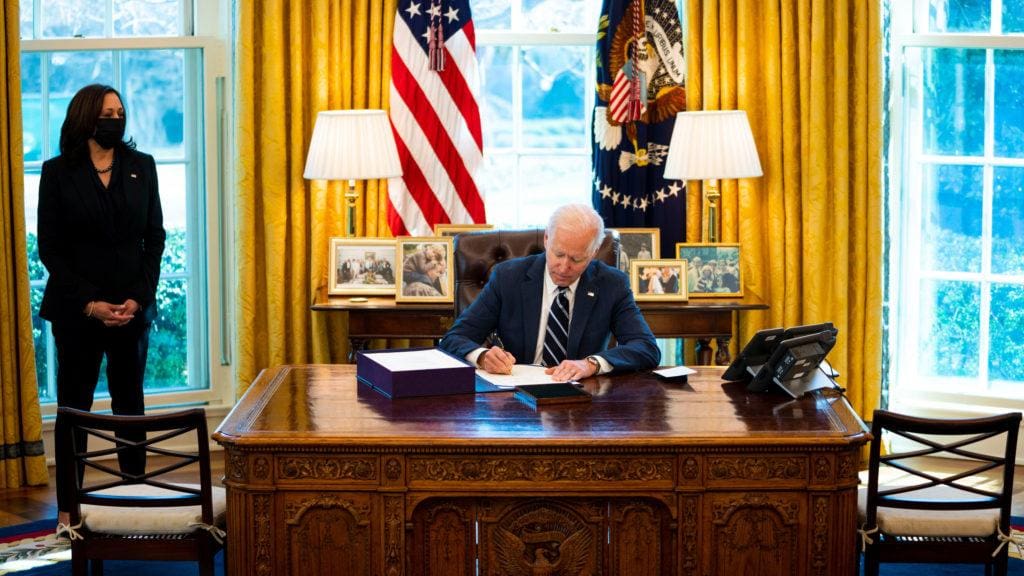The Biden administration announced a $1.8 trillion spending bill to provide further relief from the Covid-19 Pandemic and to begin to address some of the issues raised by the Congressional Progressive Caucus in the federal government. The spending plan includes billions for education and additional tax credits for children and families who are struggling most as a result of the pandemic. Biden plans to finance the program by raising taxes on the wealthiest Americans while insisting that those earning less than $400,000 per year will not need to pay higher taxes.
Further, this spending bill aims to make some of Biden’s previous changes in other stimulus packages permanent — the government will continue to subsidize health insurance purchases through the Affordable Care Act and will continue the expanded child tax credit through 2025. Additionally, it would allocate $109 billion to ensure that students across the country have access to two free years of education at community colleges while giving another $425 billion for free universal preschool and childcare funding.
Most of the money to finance the spending bill will come from increased taxes on the wealthiest Americans, who saw a tax cut earlier in Donald Trump’s presidency in 2017. The tax rate for wealthy Americans would jump to 39.6 percent, up from 37 percent for married couples making more than $600,000 per year, and 39.6 percent again for capital gains more than $1 million in addition to closing tax loopholes.
Another benefit of the Biden administration’s new spending plan would be installing a 12-week paid family and medical leave program with two-thirds pay replacement to make up for the absence of a time-off plan compared to most other developed nations around the world. The 12-week leave program is backed by fervent support from progressives and a powerful Democratic house representative, Richard Neal.
While the paid leave plan will likely receive support from additional members of Congress, it could take up to ten years for it to take effect. Many of the bill’s most staunch supporters are likely to put pressure on the timeline to provide more urgent aid to the millions of Americans who lost their jobs during the Covid-19 pandemic.
Biden will formally announce the plan to a joint session in Congress on Wednesday night to provide more details about the spending and outline his goals for the rest of his presidency following his first 100 days in office. The series of spending plans announced so far by the Biden administration will lay the foundation for the government to increase aid to its most destitute populations and potentially meet some of the goals and expectations of the Congressional Progressive Caucus. Despite resistance from conservative members of Congress, Biden’s plans are expected to pass — albeit with less money than initially planned. Members of Congress will likely split the previous infrastructure bill in half to help attract more conservative voters to the cause and ease concerns surrounding the increase in government spending.
